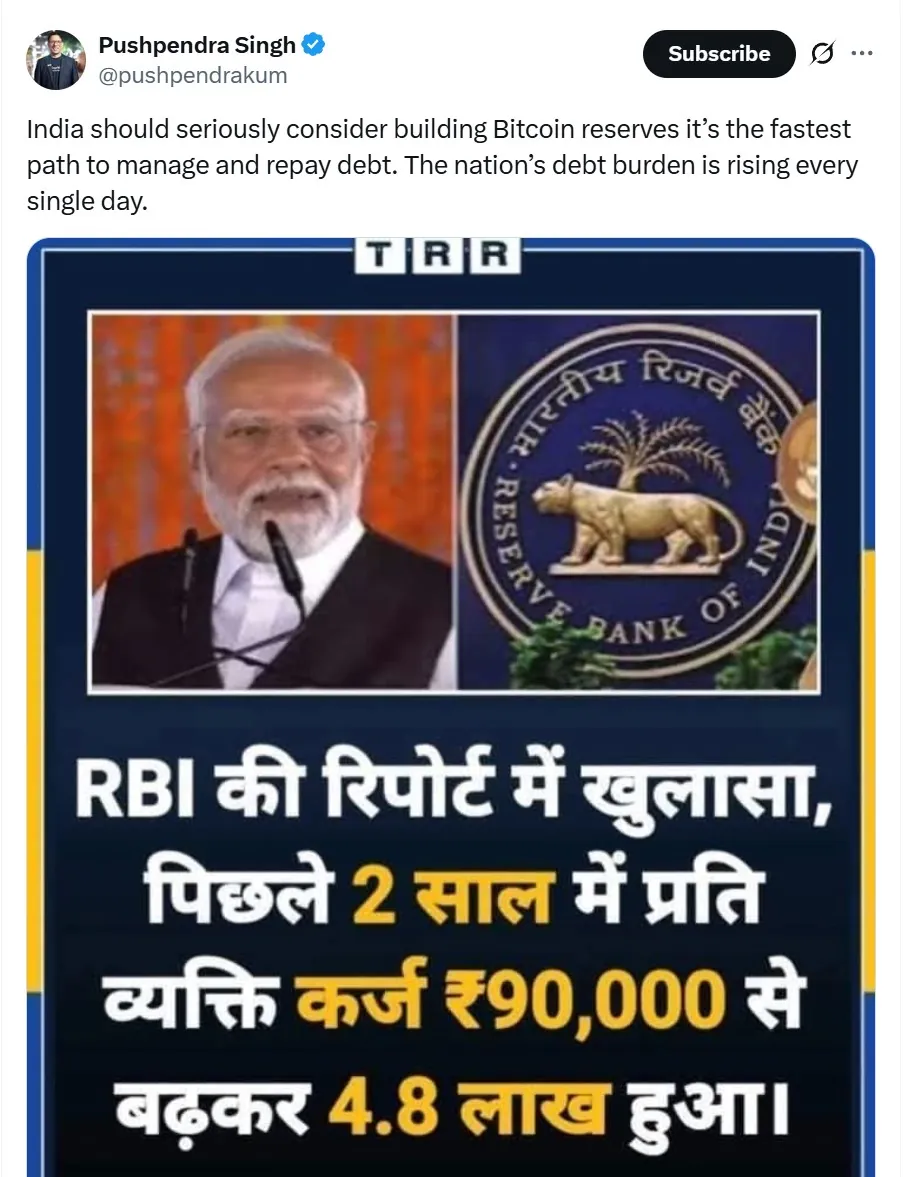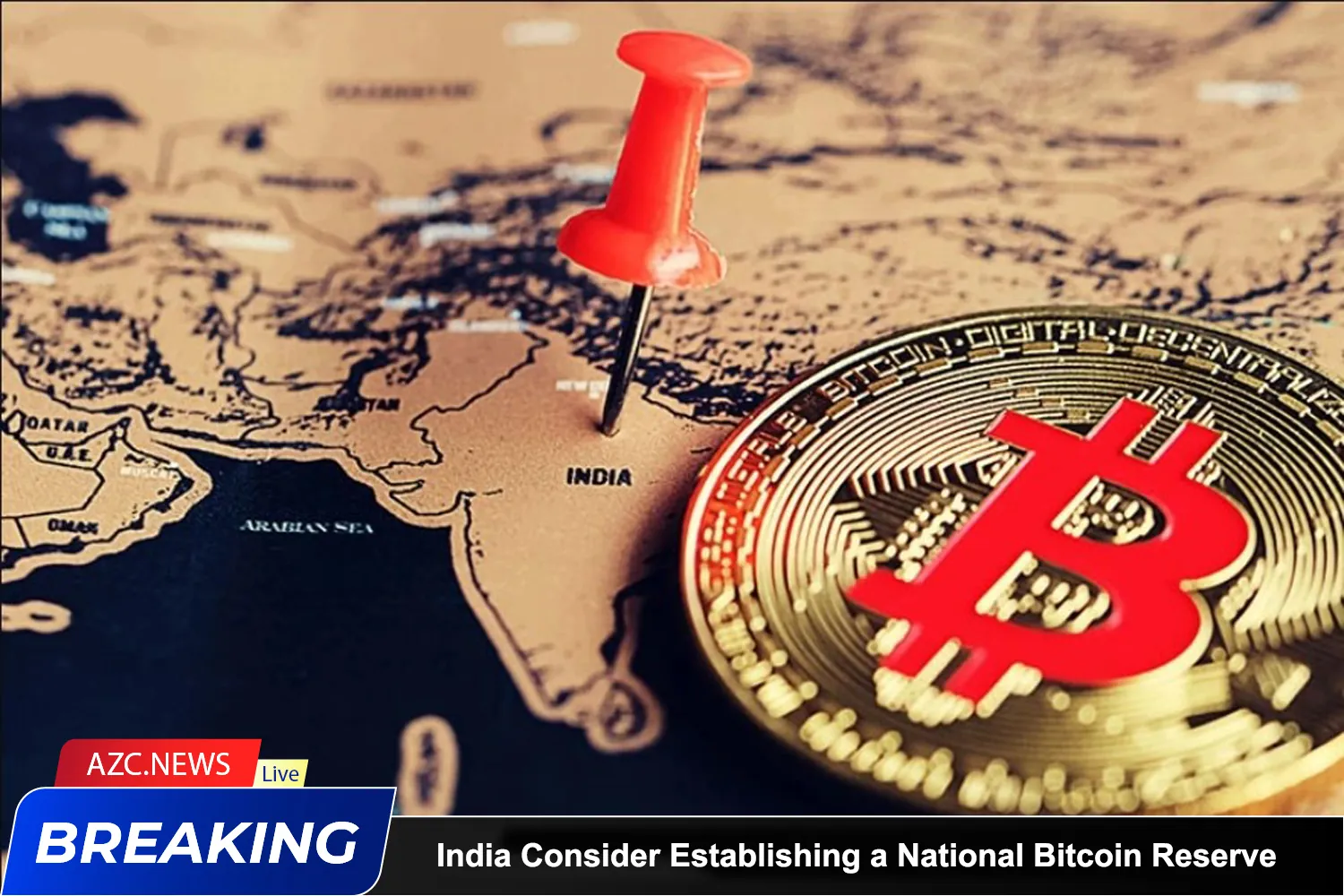The Debt Challenge
Nevertheless, public debt remains a major obstacle to India’s growth potential. The country’s debt-to-GDP ratio has exceeded 56%, with domestic debt reaching a staggering 151 trillion rupees (about $1.8 trillion). On top of this, India also carries $736 billion in external debt.
While these figures may still be more favorable than those of some regional and geopolitical rivals, the debt burden continues to fuel widespread poverty and high inflation. Over the years, the government has explored various solutions, from bulk gold purchases—where India leads the world in consumption—to other fiscal measures.

Recently, Pushpendra Singh, a tech entrepreneur and prominent crypto advocate with more than 447,000 followers on X (formerly Twitter), urged the government to seriously consider building Bitcoin reserves. Singh emphasized:
“India should seriously consider building Bitcoin reserves—it’s the fastest path to manage and repay debt. The nation’s debt burden is rising every single day.”
As a strong proponent of Bitcoin adoption, Singh believes that state-level reserves could not only ease debt pressures but also help combat global inflation, which has worsened since the COVID-19 pandemic.
Global Trends and Unanswered Questions
This is not the first time such an idea has surfaced in India. In July, a member of the ruling party proposed creating a large-scale Bitcoin reserve to “project modernity” and ensure “economic resilience.”
While New Delhi has yet to make a final decision, other nations have already moved forward. El Salvador, for instance, has made headlines worldwide by establishing a Bitcoin reserve, though its holdings are far smaller than what a country like India could potentially manage.
Adding to the complexity, India’s stance on crypto remains contradictory. It is one of the few countries in the world that taxes crypto transactions without offering clear regulations. As a result, tens of millions of Indian users are forced to trade in a “grey area,” leaving much of the market’s potential untapped and large amounts of taxable revenue uncollected.
What Lies Ahead for Bitcoin in India?
If implemented, a national Bitcoin reserve could mark a historic turning point for India—helping ease its debt burden while positioning the country as a pioneer in the digital financial era. However, the outcome ultimately depends on the government’s next move.






